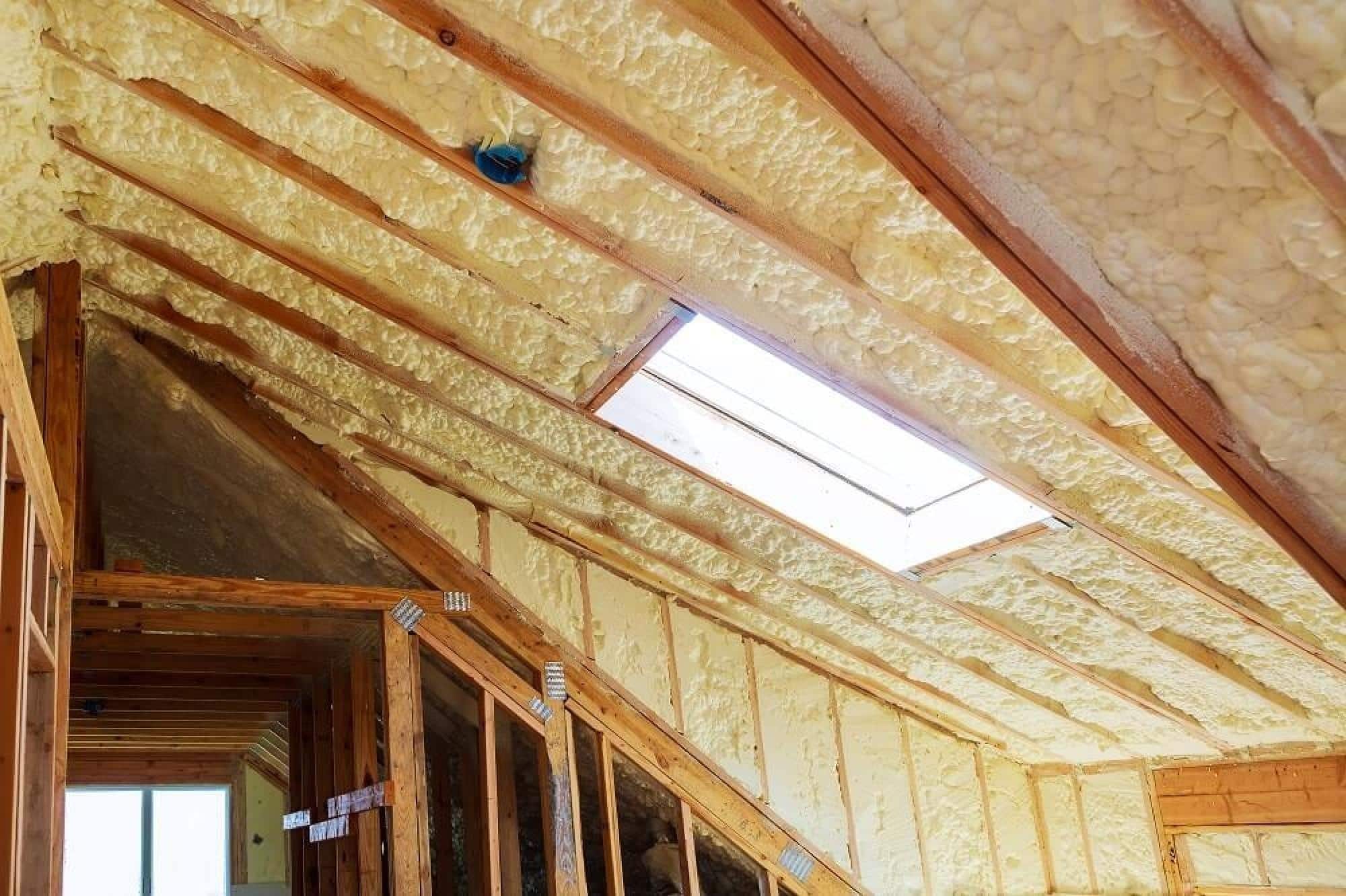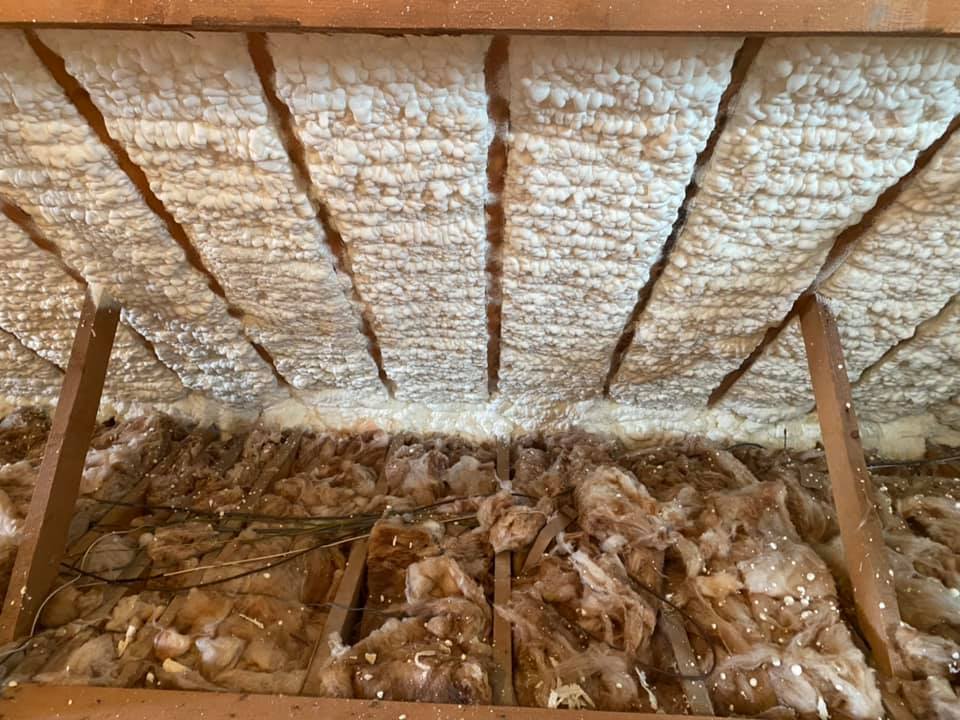Dependable insulation is essential for long-lasting home comfort because it consistently performs its job for decades without degrading. Unlike materials that can sag, settle, or absorb moisture, a truly dependable insulation system maintains its thermal resistance and air-sealing properties over the life of the home. This ensures stable indoor temperatures, predictable energy bills, and a healthy living environment year after year. It moves insulation from being a temporary fix to a permanent, foundational part of a high-performing home.
Many homeowners see a reliable insulation system as a simple component, but its long-term reliability is what separates a comfortable, efficient house from one that constantly battles temperature swings and high utility costs. This guide explains what makes insulation dependable and why, according to building science professionals, it's one of the smartest investments a homeowner can make. We'll compare different materials to show what separates a temporary fix from a lasting solution for comfort and value.
What Makes an Insulation System Dependable
The term "dependable" goes beyond a product's initial R-value, which only measures its resistance to conductive heat flow. A truly reliable insulation system is defined by its ability to maintain its performance against all forms of heat transfer and environmental challenges over a long period.
Here are the key characteristics of dependable insulation:
- Dimensional Stability: The material does not shrink, sag, or settle within the wall cavity or attic floor. Any settling creates gaps where energy can be lost.
- Moisture Resistance: It does not absorb or hold water. When insulation gets wet, its R-value plummets, and it can become a breeding ground for mold and mildew.
- Air Impermeability: It stops air from moving through it. Air leakage is a massive source of energy loss, and an insulation that doubles as an air barrier offers superior performance.
- Permanence: It does not break down or require periodic replacement or "topping off" to remain effective.
When an insulation system has these qualities, it provides consistent comfort and energy savings that homeowners can count on for as long as they own their home.

The Pitfalls of Unreliable Insulation Materials
Many common insulation materials can lose their effectiveness over time, leading to a slow decline in home comfort and a gradual increase in energy bills. This happens so slowly that homeowners often don't notice until the problems become significant.
For example, fiberglass batts can be difficult to install perfectly around wiring and pipes, leaving small but meaningful gaps. Over time, they can also sag within wall cavities, creating uninsulated pockets at the top of the walls. Blown-in insulation, like cellulose or loose-fill fiberglass, can settle and compact, reducing its installed thickness and overall R-value. If these materials are exposed to a roof leak or condensation, they can absorb moisture, which not only ruins their insulating capability but can also lead to rot in the home's wooden structure.
This degradation means that the insulation a homeowner paid for ten years ago may not be providing the same level of protection today. The result is drafts, chilly rooms, and an HVAC system that has to work harder and harder to keep up.
A Comparison of Insulation Longevity
To understand dependability, it helps to compare how different materials hold up over time. Spray foam insulation is often cited by building experts as a top performer in longevity because it actively addresses the common failure points of other materials. When applied, it expands and adheres to the structure, meaning it can't sag or settle. Its structure also gives it excellent long-term performance characteristics.
Here’s how common insulation types stack up in terms of their long-term dependability:
These performance metrics are a big part of the story, but the benefits of dependable insulation go even further. It also plays a major part in protecting the health of both the occupants and the building itself.
How Durable Insulation Protects Home Health and Structure
By controlling air and moisture movement, a dependable insulation system creates a less hospitable environment for common household problems.
Closed-cell spray foam, for example, is impermeable to moisture. This prevents damp, humid air from condensing inside walls, which is a primary cause of mold and mildew growth. A home with properly managed moisture is a healthier home, with fewer allergens and better indoor air quality.
Furthermore, a solid and seamless insulation barrier can deter pests. Rodents and insects can easily tunnel through and nest in fibrous insulation materials. A rigid foam barrier, however, is much more difficult for them to penetrate, helping to keep them out of the home's walls and attic. This long-term pest resistance helps protect the home's wood framing from damage.
Key Factors to Consider for a Long-Lasting Solution
When choosing insulation, homeowners should think like they are making a 30-year investment, not a 5-year one. Here are some things to consider to ensure the solution is truly dependable.
- Climate Considerations: In a hot, humid climate, moisture management is just as important as R-value. An insulation that acts as a vapor barrier is a huge advantage. In a very cold, dry climate, achieving the highest possible R-value and a perfect air seal is the main goal.
- Total Cost of Ownership: Don't just look at the initial installation price. Consider the lifetime cost. A cheaper material that needs to be removed and replaced after a major roof leak, or one that requires adding more material every 15 years, may end up being more expensive in the long run.
- Existing Home Conditions: For older, drafty homes, an insulation that also air-seals will provide the most dramatic improvement in comfort and energy savings. For new construction, it's an opportunity to build a high-performance home from the start.
- Contractor Reputation: The installer is just as important as the material itself. Even a high-performance material can underperform if installed incorrectly, which is why choosing a certified, experienced, and reputable contractor is essential. A professional who understands building science will ensure the insulation is installed to perform for decades, so always check for certifications, read reviews, and ask for references.

Bonus Tip: Before upgrading insulation, consider getting a professional home energy audit. An auditor can use tools like a blower door and infrared camera to find exactly where the home is losing energy. This allows a homeowner to target the investment for the biggest possible impact.
Answering Your Questions on Insulation Durability
Does R-value decline over time?
For some insulation types, the effective R-value can decline. When fibrous insulation settles, the thickness is reduced, which lowers the overall R-value of the wall or attic. If it gets wet, the R-value drops almost to zero until it dries out, and it may not fully recover. Materials like spray foam, which are dimensionally stable and moisture-resistant, maintain their R-value over the long term.
Is it a good idea to just add more insulation on top of the old stuff?
This can be a temporary fix, but it's often not a dependable long-term solution. It won't solve underlying air leakage problems. Plus, if the old insulation has moisture or pest issues, covering it up can make the problem worse. In most cases, it's better to remove the old, underperforming insulation and start fresh.
How does dependable insulation affect my home's resale value?
It has a positive effect. Energy efficiency is an increasingly important feature for homebuyers. A home that can prove it has high-performance, long-lasting insulation is more attractive to buyers and can command a higher price. It's a clear indicator of a well-maintained and future-proofed home.
Can insulation ever be damaged?
Yes. Physical damage from renovations, pests, or major water leaks can compromise any insulation system. However, a durable, water-resistant material like closed-cell spray foam is much more resilient to these events than traditional fibrous materials.
The Foundation of Lasting Comfort
Dependable insulation is not just another building material; it's a long-term strategy for home comfort, efficiency, and health. By choosing a solution that resists settling, moisture, and air leakage, homeowners are investing in a system that will deliver predictable performance for decades. It provides peace of mind that the comfort and savings enjoyed today won't fade away over time. When making a decision, it's wise to look past the initial price and focus on the lifetime value that a truly professional insulation system provides.
Getting a Professional Assessment for Your Home
The best way to determine the right long-term insulation strategy for a specific home is through a professional consultation. An experienced contractor can evaluate a property's unique needs and recommend a solution built to last. For homeowners seeking this kind of expert guidance, specialists like Premier Insulation GA offer comprehensive assessments. They can be reached by email at [email protected] or by phone at (229) 554-3939 to discuss options and plan a project.
Reviewer: Jack Parker, a spray foam professional with 7 years of experience, reviewed this post and helped improve sections dealing with brand clarity and customer communication.






Comments